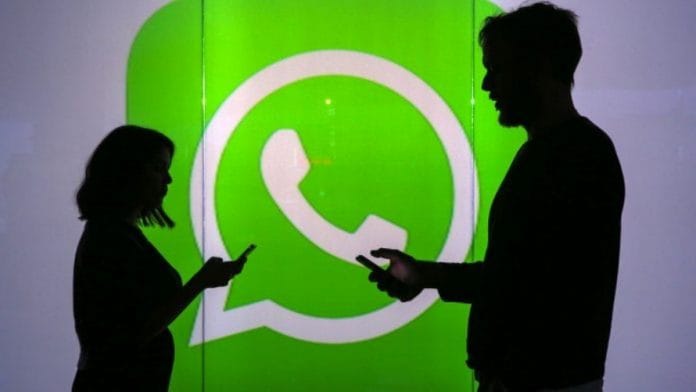New Delhi: The BJP has said that the Congress’ continued attacks on one of the Narendra Modi government’s new Information Technology Rules are unwarranted, given that the Ministry of Electronics and Information Technology is only following a recommendation made last year by a committee headed by senior Congress leader Jairam Ramesh.
The Rajya Sabha ad hoc committee headed by Ramesh had recommended breaking end-to-end encryption to trace child pornography, and also include provisions to punish the intermediary social media platform if it fails to remove the objectionable content and act against the originator of the content in a given time frame.
BJP IT Cell chief Amit Malviya tweeted that the Congress insists on “embarrassing itself” again and again, pointing to the Ramesh-headed panel’s January 2020 report on breaking end-to-encryption. But the former Union minister responded by saying that “text depends on context” — his committee of 14 MPs, set up by Rajya Sabha Chairman and Vice-President of India Venkaiah Naidu, was studying the alarming issue of child pornography on social media, and its recommendation applied to that alone.
IT Minister Ravi Shankar Prasad has stressed that while the scope of the new rules, notified under the Information Technology Act on 25 February this year, is broader, including offensive messages relating to sovereignty, integrity, security, rape and child sexual abuse, the government respects the citizens’ right to privacy. “These measures will be taken only as last resort,” he said.
Government fully recognises and respects the right of privacy. Ordinary users of WhatsApp have nothing to fear about the new Rules. Its entire objective is to find out who started the message that led to commissioning of specific crimes mentioned in the Rules. pic.twitter.com/VCVYkwiftG
— Ravi Shankar Prasad (@rsprasad) May 27, 2021
But the issue has returned to the headlines after Facebook-owned WhatsApp approached the Delhi High Court, challenging the Centre’s IT rules, contending that this new rule to break end-to-end encryption “infringes users’ fundamental rights of privacy and freedom”.
Since then, Rahul Gandhi and several Congress leaders have attacked the Modi government for infringing on fundamental rights by “crushing” social media platforms with the draconian rules.
Also read: Concerned about ‘potential threat to freedom of expression’ — Twitter on police visit, IT rules
What the committee recommended
The ad hoc committee of the Rajya Sabha, also including Ramesh’s fellow Congress leader Rajeev Gowda, Samajwadi Party’s Jaya Bachchan and AAP’s Sanjay Singh, among other opposition and BJP MPs, submitted its report in January 2020.
It made recommendations on legislative framework; technological, institutional, social and educational measures; and state-level initiatives to counter the challenge of child pornography. One of the main suggestions under the technological measures to stop the menace was breaking end-to-end encryption to trace its distributors.
The committee’s report, which is public, recommended modifying the IT rules (Intermediary Guidelines), 2011, to include the ability to trace the originator or sender of a message shared on end-to-end encryption platforms, in cases where Child Sexual Abuse Material (CSAM) has come to notice of the law enforcement agencies.
The committee recommended two specific changes in the IT rules — one of which was Section 69A, which defines the power of the Union government or designated authority to block or prohibit a website or intermediary that carries pornographic material.
The committee said the intermediary should report such cases to Indian authorities, there should be a non-violable time-frame specified for reporting, and penalties should be specified for violation of this time frame.
WhatsApp court case triggers fresh political allegations
The recommendations of the Jairam Ramesh committee have assumed fresh significance because WhatsApp, while moving the Delhi High Court, expressed its inability to comply with new IT rules, saying the clause of traceability will undermine people’s fundamental right to privacy.
However, the Modi government has contended that the requirement of traceability is for prevention and investigation of serious offences. The IT ministry, in its written reply to Parliament, said traceability will be the last resort.
On Wednesday, the Congress attacked the government for its “draconian rule”, and going into people’s bedrooms by breaking the end-to-end encryption rule.
Congress spokesperson Abhishek Manu Singhvi said, at a virtual press conference on the issue of Twitter and WhatsApp’s current tussles with the Centre, that the government is acting like a “control freak”, and the move is against the vibrant culture of India.
The problem is not with these words, some of which are found in the Indian constitution also. The problem lies in Modi ji’s New India, where every disagreement is sedition and every dissent is objectionable and legally punishable: Shri @DrAMSinghvi pic.twitter.com/lc2nQ7MIjj
— Congress (@INCIndia) May 27, 2021
“Technologically, the backbone of privacy is end-to-end encryption. If you don’t have end-to-end encryption, it is like keeping a camera in your drawing room or bedroom 24×7. The biggest assault by the government is of course on all social and digital media, but it is principally focused on messaging platforms,” Singhvi said.
However, BJP spokesperson R.P. Singh told ThePrint: “There cannot be two yardsticks. You are recommending tracing WhatsApp and social media messages to find child abusers, and if we are making rules, you are crying that we are infringing upon fundamental rights. This is total hypocrisy by the Congress party.”
(Edited by Shreyas Sharma)
Also read: What Twitter, Facebook & social media firms could stand to lose if they miss IT Rules deadline






